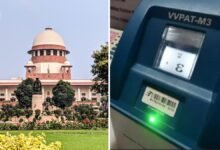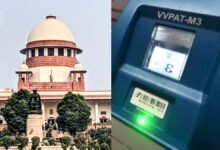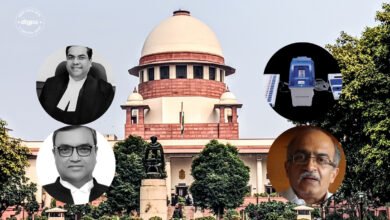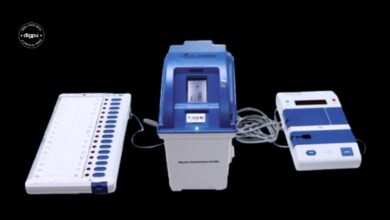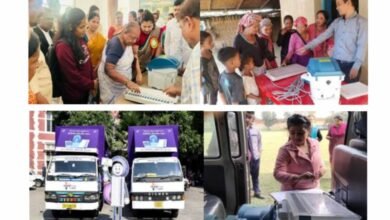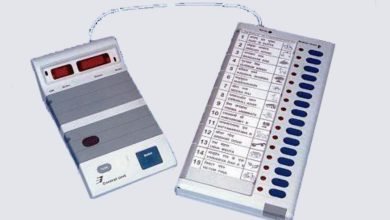Supreme Court Grapples with Electoral Integrity Concerns Amid EVM & VVPAT Controversy
Justices Sanjiv Khanna and Dipankar Datta opted to defer further deliberations to April 18.
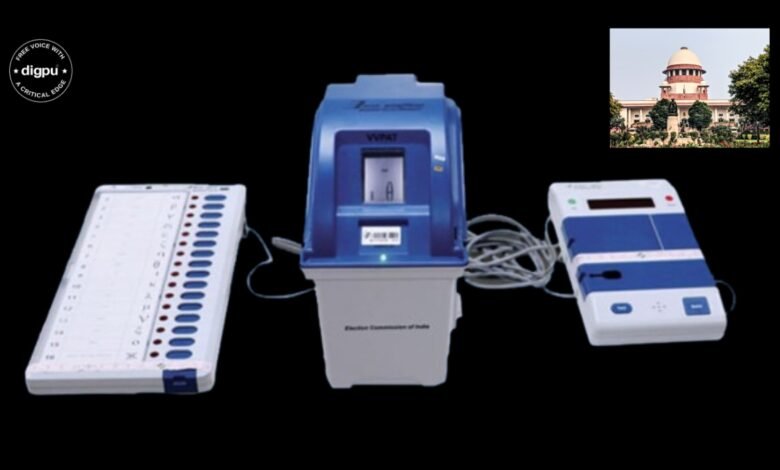
A significant number of people in India are concerned about the potential tampering of Electronic Voting Machines (EVMs) and Voter-Verifiable Paper Audit Trail (VVPAT) systems, fearing that someone might manipulate them to alter votes. Consequently, a group of citizens approached the Supreme Court, urging for safeguards to ensure the accuracy and security of their votes.
On Tuesday, April 16, the Supreme Court entertained petitions calling for a comprehensive examination of EVMs against VVPAT records. Following a discussion spanning over two hours, Justices Sanjiv Khanna and Dipankar Datta opted to defer further deliberations to April 18. It’s pertinent to note that the first phase of the Lok Sabha elections is scheduled to commence the subsequent day, on April 19, 2024.
Advocate Prashant Bhushan, representing the Association for Democratic Reforms (ADR), presented several proposals during the proceedings. He suggested reverting to the use of paper ballots or allowing voters to witness and deposit their voting slips into a ballot box for subsequent counting. These proposals aimed to enhance transparency and reduce the likelihood of electoral fraud.
When questioned about the source of the data supporting his arguments, Bhushan referenced a poll conducted by the Centre for the Study of Developing Societies (CSDS). However, Justice Dipankar Datta expressed skepticism, cautioning against reliance on private polls.
During the hearing, Advocate Bhushan outlined three fundamental proposals to bolster the electoral process. He advocated for the reintroduction of ballot papers, citing examples from European countries like Germany. However, Justice Datta challenged this analogy, emphasizing the impracticality of such measures in a populous country like India.
Furthermore, the bench engaged in a dialogue with an intervenor regarding the accountability of technical personnel involved in manufacturing EVMs. The court stressed the importance of scrutinizing data to assess the integrity of EVMs and address discrepancies in vote counts.
Advocate Bhushan asserted that simultaneous verification of all VVPAT slips would not significantly prolong the process, underscoring the importance of transparency in validating votes.
Additionally, the court sought clarification from the Election Commission of India (ECI) regarding the security measures in place to protect voting machines. The ECI outlined its procedures for sealing and safeguarding EVMs, while some lawyers argued for measures to ensure fair elections, even if it entails minor delays.
The hearing concluded with unresolved arguments, with proceedings slated to resume on April 18 for further deliberation.
